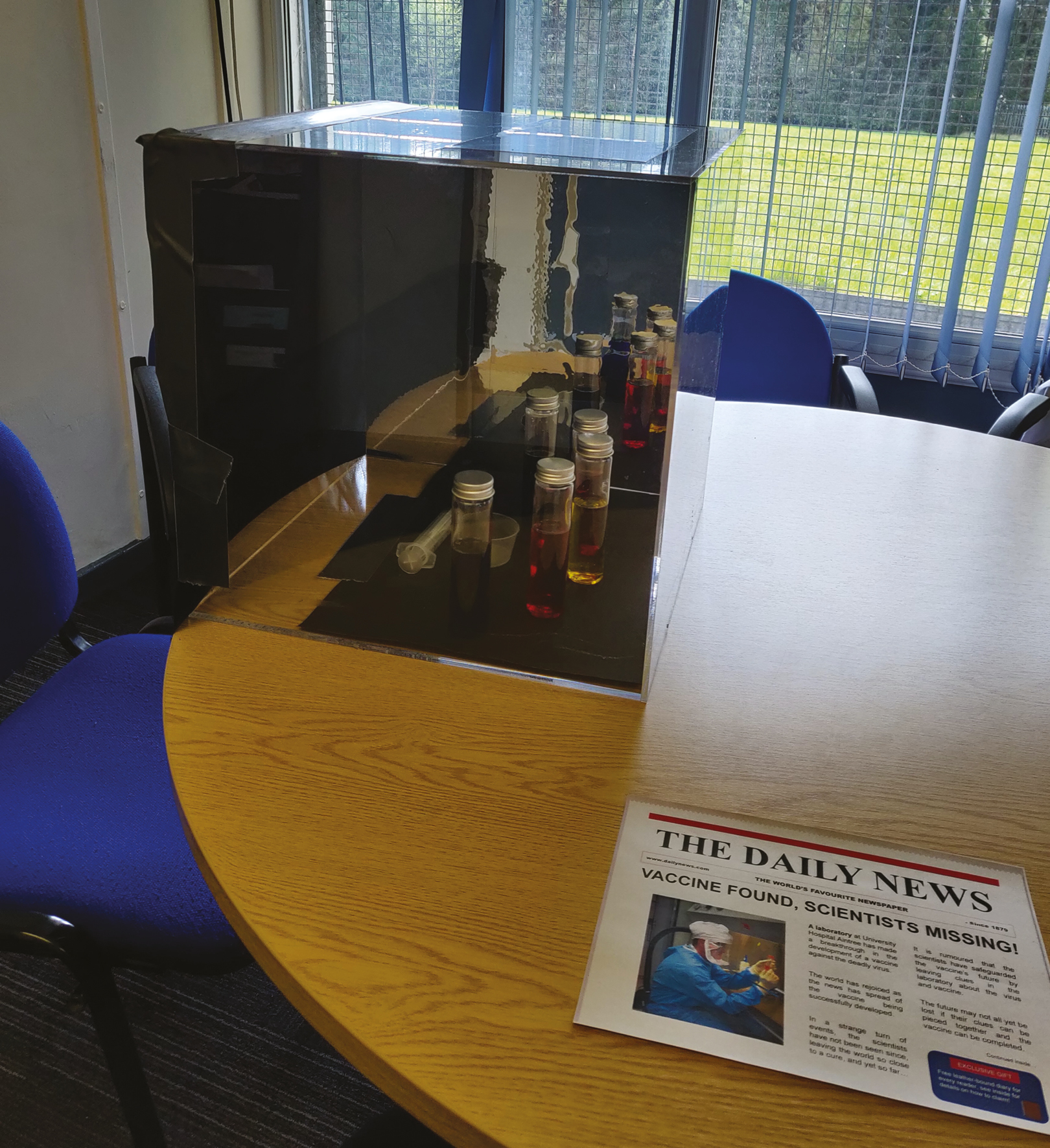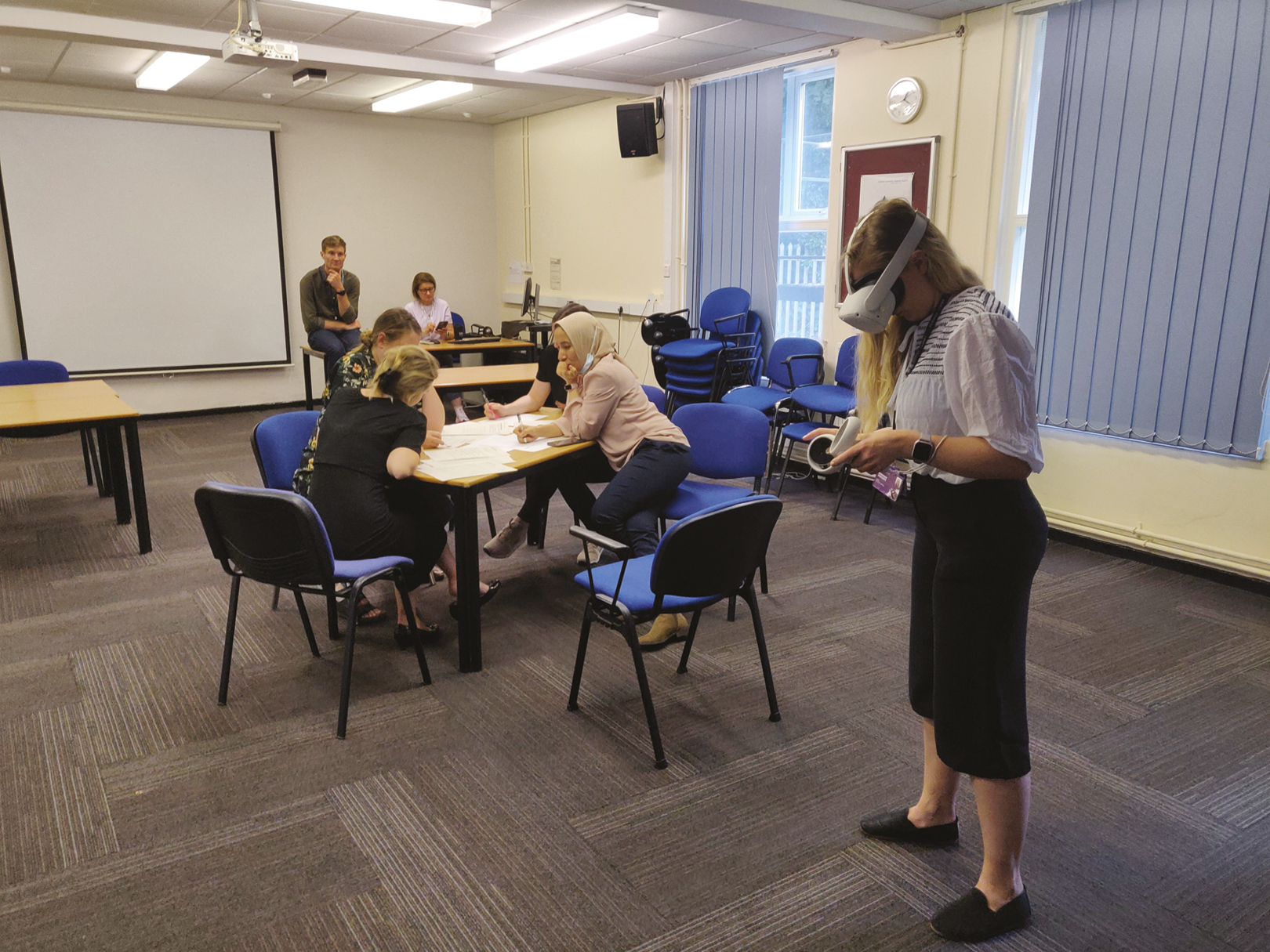
Supported Return to Training (SuppoRTT) is an initiative by Health Education England (HEE) designed to bridge the gap created by taking time out of training for any reason. Courses, including simulation and virtual reality (VR) resources [1], have been previously developed to help expedite SuppoRTT trainees’ return and improve confidence.
Locally, the SuppoRTT team has been running a high-fidelity simulation course. In debriefing for this, we identified SuppoRTT trainees are often most concerned with the technical aspects of the scenario, shifting away from non-technical skills (NTS) and onto the clinical knowledge, despite the importance of NTS such as communication in healthcare delivery [2]. Research on the use of simulation-based learning has shown it can be used to train NTS including communication [2] and situational awareness [3].
We have developed a course focusing specifically on NTS training for this unique group. The pilot was designed using gamified learning methods, including an escape room and VR game.
In escape rooms, players work together to solve a series of challenges within a set time. Medical training has utilized both commercial and purpose-built escape rooms; some with medical themes (e.g. goal of managing a ruptured ectopic pregnancy), and others are non-medical but focus on NTS [4].
VR involves interacting with an immersive three-dimensional environment through a headset. The majority of medical literature on VR has been regarding its use in rehabilitation; however, VR has also been used for medical training, particularly within surgery [5].
The half-day course contained three parts: a lecture, a ‘traditional’ escape room and a VR teamworking game.
The lecture by a consultant anaesthetist anchored the course to theory and to practical examples of human factors principles within healthcare.
The ‘traditional’ escape room (Figure 1) built within the hospital site consisted of a series of interlinked puzzles requiring teamwork and innovative thinking, with the goal of creating a ‘vaccine’ to an unknown disease. The room required 30–40 hours of design work and was trialled with multiple different audiences, receiving feedback and design changes after each trial run. The team was briefed on the premise of escape rooms and they had 45 minutes to complete it. A ceiling-mounted high-definition camera and microphone allowed the facilitator to observe and provide hints. The debrief covered themes including closed-loop communication, situational awareness and leadership.


Examples of props used in the escape room.
The VR workshop (Figure 2) used a Meta Quest 2 headset to play ‘Keep Talking and Nobody Explodes’ (Steel Crate Games v1.9.22). One person wore the headset and was tasked with defusing a ‘bomb’ within a time limit, with the rest of their team helping using a ‘manual’ consisting of logic puzzles and checklists. A mini-debrief was held before the team members swapped roles, with a longer debrief at the end of the hour session. Common themes were closed-loop communication, use of common language, use of checklists, role allocation and working under pressure in unfamiliar environments.


Candidates taking part in the virtual reality session.
Pre- and post-course questionnaires were completed by five candidates in this pilot.
All SuppoRTT trainees had been out of training for at least 1 year. The five candidates described their primary concerns for returning to work being ‘time management’, ‘emergency work’ and ‘new policies and procedures’. Only one candidate considered NTS a primary concern before returning to work. Following the pilot, each of the candidates explained an appreciation to address NTS before their return to work, and all described increased confidence addressing related principles. 100% felt that the escape room was an appropriate and fun way to approach this teaching. The VR session was appreciated as an immersive and useful experience; however, not all candidates felt it was as relevant for NTS teaching.
Candidates commented that the course was a fun and novel way to approach NTS. They felt that it was appropriate to every specialty within medical training, and it was good to work in a new team. When asked for improvements to make to the course, the main theme was more time for consideration of NTS within the clinical setting.
This was a small regional pilot assessing a gamified NTS course for doctors returning to training. Further trials are required to develop a case for including it in the regional SuppoRTT package. The use of VR was enjoyed as an immersive experience, but candidates were less certain of the relevance to NTS, perhaps due to the use of software not specifically designed for this teaching, or it could be that learning outcomes were imperfectly discussed in debrief. We will review the VR package and debriefing for this session. This course was funded for doctors returning to training; however, NTS are multi-professional and therefore involving multidisciplinary teams (e.g. in general practice, emergency department or theatres/critical care) may improve alignment to our learning outcomes and better reflect the teamwork experienced in day-to-day practice.
Thank you to Dr. Sarah Fadden for her support with our pilot, and Mr. Tim Parr and the rest of the simulation team for their help in facilitating the testing and the pilot day.
All authors contributed to project conception, design and implementation. The authors jointly prepared the manuscript.
This project received funding from the North West SuppoRTT Bid.
The Medical Research Council (MRC) Regulatory Support Centre/Health Research Authority (HRA) decision tool was used to establish this project was not research and did not require NHS ethical approval.
The authors declare no relevant conflicts of interest.
Data can be made available if required.
1.
2.
3.
4.
5.